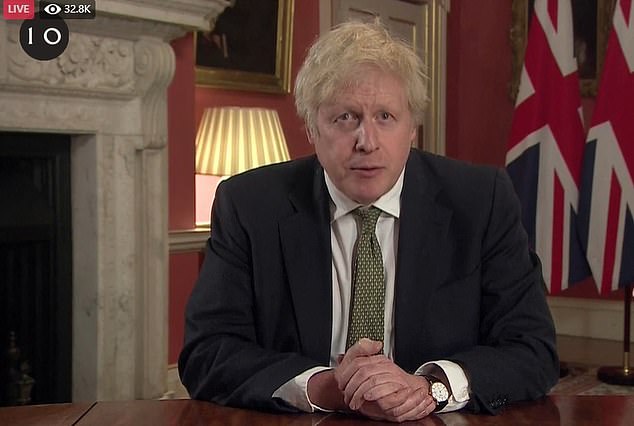Covid lockdown England: Will restrictions be enough to stop spread?
Wales has shut schools for two weeks to fight the spread of coronavirus despite being under harsh restrictions since before Christmas.
Wales entered a Tier 4 lockdown on December 20, with restrictions barring non-essential shops, gyms and hospitality venues from opening.
Only essential travel was permitted, and working from home was ordered to take place ‘wherever possible’.
This came after Wales went into lockdown on October 23, which saw an initial drop in cases, followed by another sharp rise, with First Minister Mark Drakeford saying the situation had ‘deteriorated’.
All of Wales is now at alert Level 4, meaning people should stay at home, not mix with other households and not travel without a reasonable excuse.
Some schools had been preparing to resume face-to-face learning as early as Wednesday, but education minister Kirsty Williams announced on Monday that schools and colleges will remain closed until at least January 18 and move to online learning.
‘Wales remains in the highest level of restrictions. Everyone must stay at home,’ Ms Williams said.
The additional measures raise questions for Britain as a whole, as the harsh measures introduced late last year, similar to those now imposed on England, did not reverse Wales’s Covid misfortune, suggesting England could possibly see even stricter rules brought in.
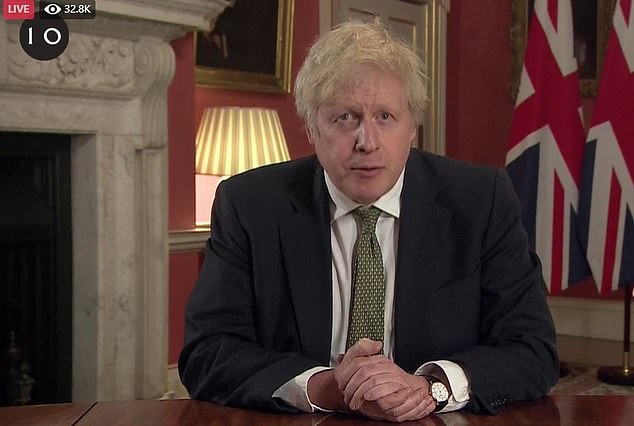
Boris Johnson tonight plunged England into a new lockdown as he set out emergency measures to control the spread of new strains of coronavirus amid concerns the NHS risks being overwhelmed.
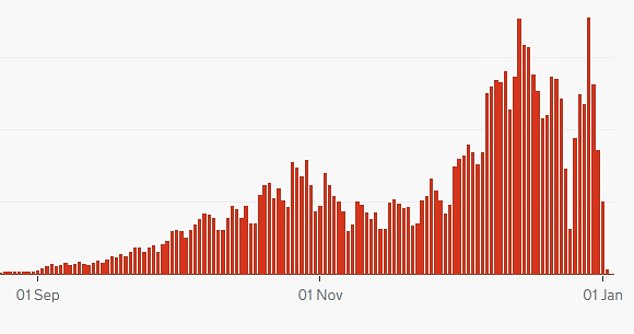
Wales entered a Tier 4 lockdown on December 20, with restrictions barring non-essential shops, gyms and hospitality venues from opening (pictured: daily coronavirus cases in Wales)
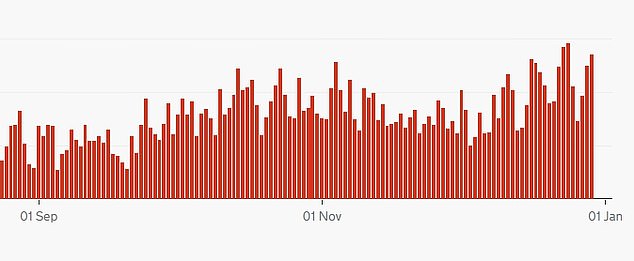
Only essential travel was permitted, and working from home was ordered to take place ‘wherever possible’ (pictured: Covid-19 patients admitted to hospital in Wales)
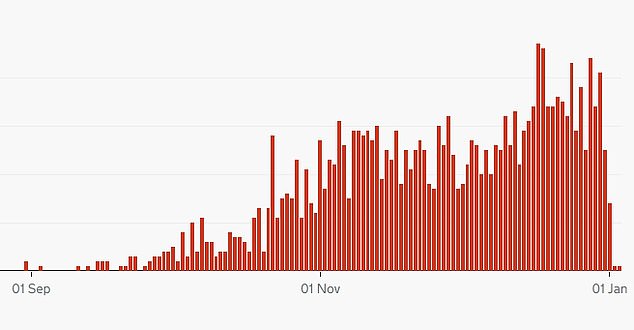
This came after Wales went into lockdown on 23 October, which saw an initial drop in cases, followed by another sharp rise, with First Minister Mark Drakeford saying the situation had ‘deteriorated’ (pictured: deaths within 28 days of a positive test in Wales)
Boris Johnson announced on Monday evening a third national lockdown on England, shutting schools to most students to prevent the NHS being overwhelmed by surging coronavirus infections.
Mr Johnson said the new variant, which is up to 70% more transmissible, was spreading in a ‘frustrating and alarming’ manner, and warned that the number of Covid patients in English hospitals is 40% higher than the first peak.
‘As I speak to you tonight, our hospitals are under more pressure from Covid than at any time since the start of the pandemic,’ he said.
Pinning his hopes on the rapid rollout of vaccines to ease restrictions, Mr Johnson acknowledged ‘how frustrated you are’ and that ‘you have had more than enough of Government guidance’ – but stressed ‘now, more than ever, we must pull together’.
‘The weeks ahead will be the hardest yet but I really do believe that we’re entering the last phase of the struggle because with every jab that goes into our arms we’re tilting the odds against Covid and in favour of the British people,’ he added.
The lockdown will be brought into law as soon as possible, but Mr Johnson urged the public to follow the rules straight away.
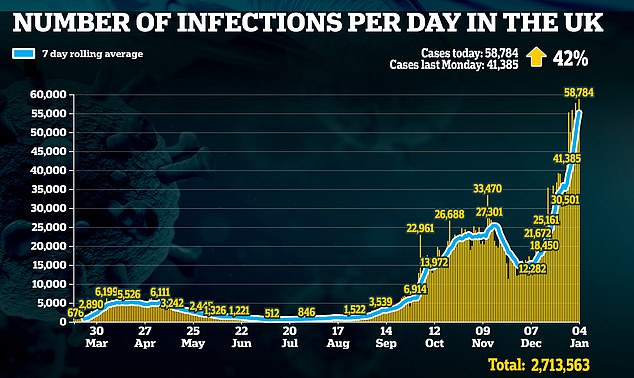
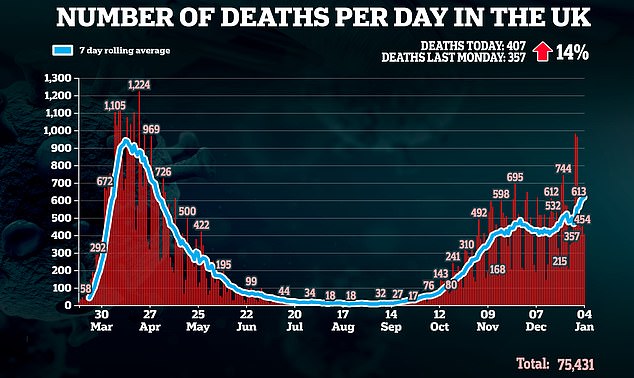

The Prime Minister’s address from 10 Downing Street came after Nicola Sturgeon plunged Scotland into a new lockdown
Mr Johnson’s statement came after the chief medical officers for the first time raised the UK to the highest level on the Covid-19 alert system.
They warned the NHS is at risk of being overwhelmed within 21 days ‘in several areas’ without further action.
The restrictions are unlikely to be eased until around 13 million people aged over 70 or classed as clinically extremely vulnerable have received the vaccine and been given enough time to be protected – a period of about two to three weeks after getting the jab.
Kirsty Williams said the Welsh Government would use the next two weeks to work with local authorities and education settings to ‘best plan for the rest of the term’.
The government had previously arranged for schools to have flexibility over the first two weeks of the spring term, allowing them to choose when students would return to in-person learning.
Universities in Wales are due to begin a staggered start to term and students should not return for face-to-face learning unless notified that they can do so, she added.
Exams in Wales due to be held in the summer had already been cancelled.

